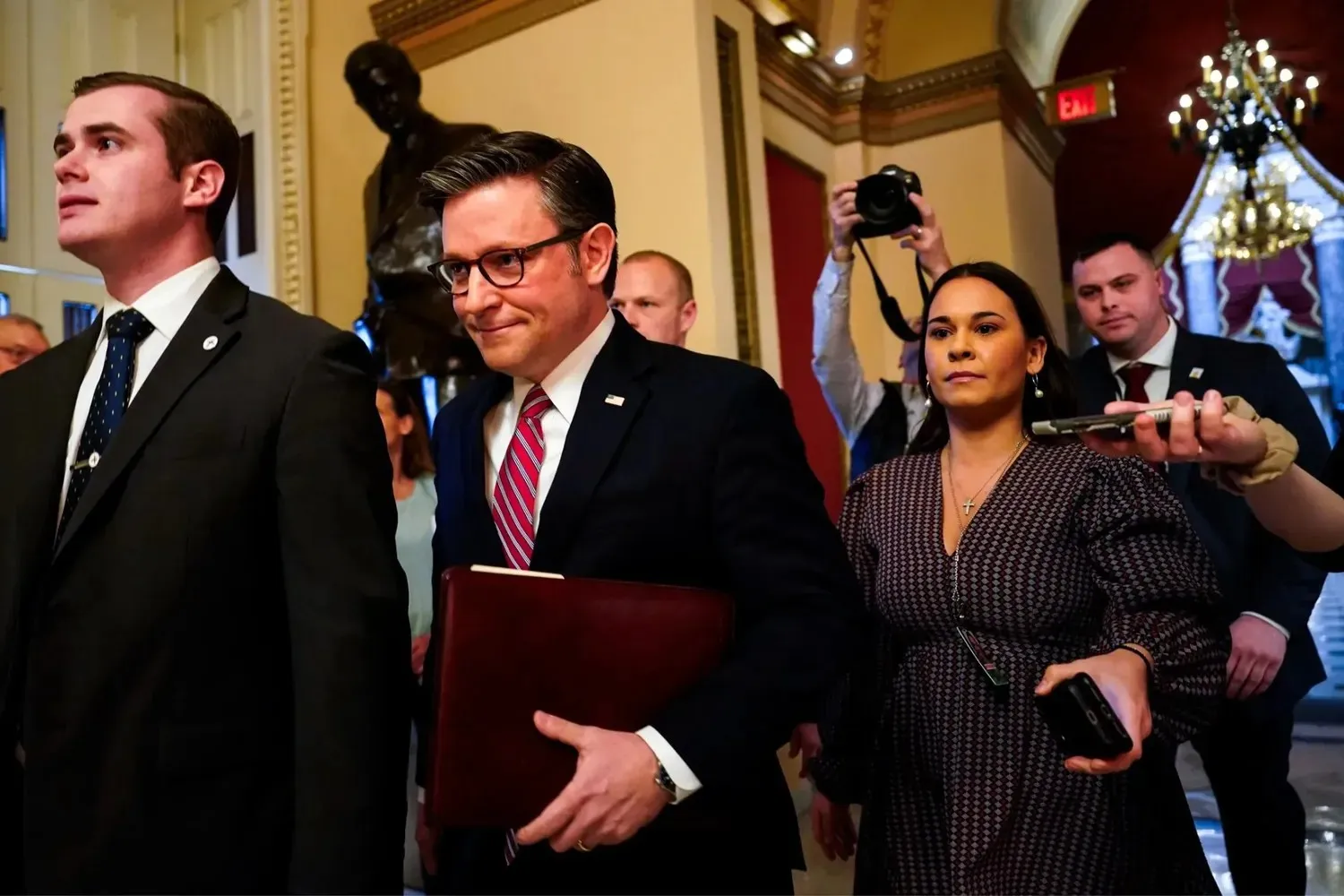
The federal government will keep running until early March. On Thursday, Congress reached a temporary funding agreement that kept the government from shutting down right away but set the stage for another important budget fight in a few weeks. After days of heated debate, both the House and the Senate passed the proposal with support from both parties.
The continuing resolution is a short-term bill that keeps government spending at the same level. It gives lawmakers more time to finish full-year budgets that cover important areas like health, transportation, the military, and social welfare.
Democratic leaders thought the action was necessary to keep government services running smoothly and to avoid delays in paychecks and furloughs for government workers. They also said that passing the measure would stop bad things from happening to safety-net programs, airport operations, emergency response, and national security.
In the end, many Republicans supported the extension to keep the government running, even though they were unhappy that the bill didn't include the deeper spending cuts they had asked for. They were worried that a shutdown could hurt border operations, small businesses that rely on federal contracts, and military readiness. Conservative MPs promised to keep pushing for cuts in the next round of talks.
Budget experts say that agencies are under a lot of stress because they keep relying on short-term fixes. This has led them to cut back on long-term planning, put off maintenance, and put off hiring new workers. Federal officials say that running programs is getting harder because of uncertainty, especially for agencies that rely on activities that need to happen quickly or at certain times of the year.
“This is not a final solution, but it prevents unnecessary harm to millions of Americans,” said Rep. Rosa DeLauro
Also, state and local governments that depend on federal money for public health, environmental cleanup, and transportation programs warned that it is harder to plan infrastructure projects and emergency response operations because the funding is not always steady.
Both sides agreed that there is still work to be done. Lawmakers have a few weeks to work out their differences over spending levels, border policy, funding for Ukraine, and domestic programs. These were the main reasons for the last deadlock.

Long-Term Budget Fight Still Looms
Experts on budgets say that the short-term agreement only puts off a bigger fight over federal spending. March is likely to be one of the hardest deadlines Congress has had to deal with in years. MPs had to come up with yet another temporary solution because they couldn't agree on border financing, aid for Ukraine, social programs, or agency budgets.
Federal budget experts say that the longer Congress uses temporary bills, the harder it will be for them to finish the full-year spending plan. With short-term funding, agencies have to plan contracts, staff, and programming months in advance, which is almost impossible.
Some senior appropriators have privately said that they are worried that if party leaders can't agree on how to enforce immigration laws, how much money to spend on the Pentagon, and how much money to give to domestic agencies, March could bring another deadlock. Also, several senators have warned that working together across party lines may become even harder during election years.
Economists say that the cycle of last-minute deals and funding brinkmanship has slowed down infrastructure schedules, made long-term projects more expensive, and hurt federal contractors' trust. Government officials say that uncertainty has also caused staff to leave several agencies, with workers saying that unstable funding is the main reason they quit.

Skenes and Skubal Win Cy Young Awards as Future Uncertainty Grows
NOVEMBER 12, 2025

Politics

Kevin McCarthy Ousted as House Speaker in Historic Vote
The House kicked out its speaker for the first time in American history after a GOP mutiny joined Democrats in a historic and dramatic vote.
POLITICS BY OCTOBER 18, 2025

Democrats are facing a growing grassroots uprising one year after Trump came back to power
As complaints from inside the party grow after Trump's reelection, younger voters and progressive groups are pushing Democratic leaders to work toward affordable housing, fairer economics, and big changes.
POLITICS BY NOVEMBER 5, 2025

The Supreme Court will not hear Trump's case about tariffs. But his Secretary of the Treasury will be there
Scott Bessent, the Secretary of the Treasury, is going to the Supreme Court to see if the president can use emergency economic powers to impose big tariffs.
POLITICS BY OCTOBER 3, 2025







